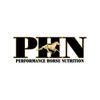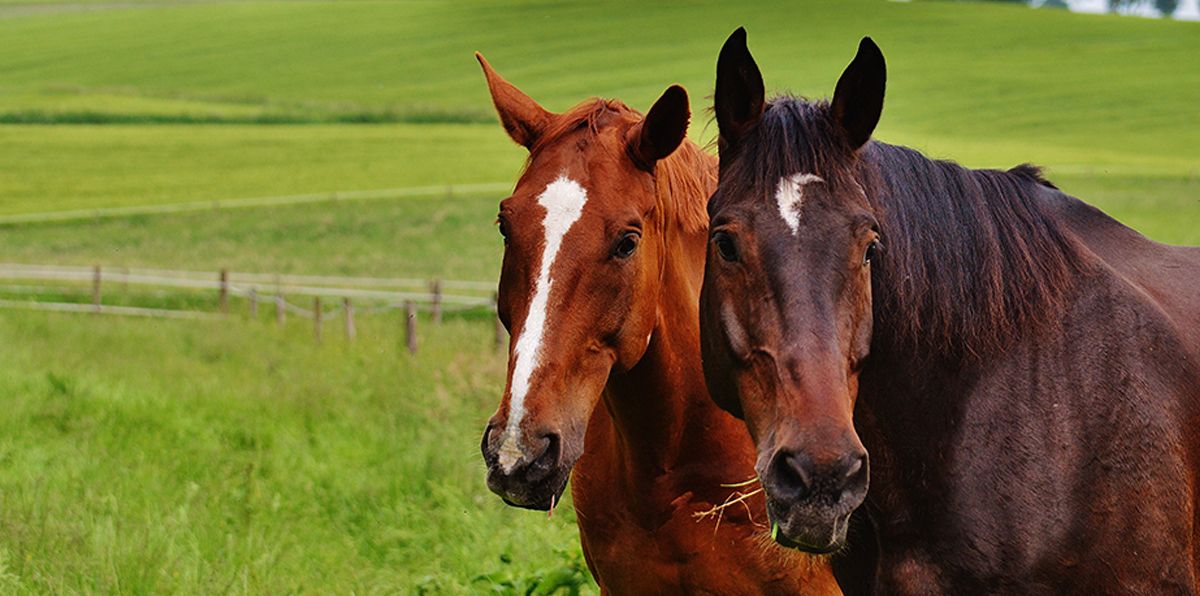It is estimated that nearly 20% of the United States horse population is 15 years old or older. It is not uncommon to hear of individual horses that may be in their upper 20’s or early 30’s. Why are horses living so long? Several potential reasons exist including improved internal parasite control, better nutrition, advances in veterinary care, and less strenuous work. As horses become old their bodies naturally begin to fail. This leaves their owners with the responsibility of providing proper care for their senior horses. A common question many owners have is “When does a horse become a senior?” In general, horses between 18 and 20 years of age are thought to be approaching their senior years. However, a better description of senior is when a horse becomes a “Nutritional Senior”. A nutritionally senior horse is one that can no longer eat its normal diet and maintain proper body condition. Nutritionally senior horses typically have one or more of the following conditions: decreased nutrient absorption, dental problems, increased sensitivity to stress and an increased likelihood of disease. Understanding these conditions will allow care givers to modify feeding programs to ensure proper nutrition.
Decreased Nutrient Absorption
Exposure of horses to intestinal parasites causes scarring of the digestive tract. These scars result in damage to the lining of the intestine which decreases nutrient absorption. Improvements in de-worming products have delayed and minimized damage from internal parasites, but over a lifetime this damage still occurs. To further compound digestion problems, the horse’s digestive tract begins to lose efficiency with advancing age. Research studies have shown that “Nutritionally Senior” horses require additional protein, phosphorus, and certain vitamins. Proper protein intake is particularly important in senior horses.
Senior horses with inadequate protein intake will breakdown muscle tissue to provide essential protein for other body functions. Muscle wasting is common in aged horses that are not getting the proper amount of protein in the diet. In creating feeds for senior horses, the protein content of the diet is similar to that which would be fed to a yearling rather than that of a mature horse.
Dental Problems
As horses age, their teeth wear down from chewing and grinding their feed. As a tooth wears, an additional tooth erupts from the jawbone in a constant cycle. The process continues until the roots holding the teeth in place become short and the tooth is lost. Old horses often loose teeth and have difficulty properly chewing their feed. Horses begin the digestive process in the mouth by reducing the physical size of feed to a suitable size for proper digestion. Without proper chewing of feed, the horse will not effectively digest its feed. Old horses will often drop or spill grain from their mouths, or they wad up hay or grass into partially chewed balls and drop them on the ground. Inefficient chewing of feed can lead to digestive upset, weight loss and nutrient deficiency. While the loss of teeth cannot be prevented, proper care of the teeth can delay problems. Feed products for senior horses can also be modified to account for chewing difficulties. Grinding and processing both the forage (hay) and grain portions of the diet into a pellet effectively does the chewing for the horse. Soaking the pellets in water prior to feeding makes them soft and easy to swallow.
Stress
Old horses are very sensitive to stress. This stress can come in the form of changes in temperature, changes in housing, dealing with the pecking order imposed by other horses, or pain. Old horses are particularly sensitive to changes in temperature, predominantly cold temperatures. Sensitivity to cold may result from decreased fat cover that acts as insulation from the cold. Sensitivity to cold could also be a result of the senior horse’s inability to chew and take in adequate amounts of fiber. It is the fermentation of fiber in the horse’s hindgut that produces heat to help warm the horse. Senior horses are also sensitive to changes in their surroundings.
Changing paddocks, stalls or routine tend to cause weight loss in senior horses. Adding horses to, or taking horses out of, a pasture containing an old horse changes the herd dynamics and sends the old horse to the bottom of the pecking order. This can also lead to weight loss since the old horse is not given adequate access to feed. Finally, senior horses may have old injuries or arthritis that causes them to be in constant pain. Horses that experience pain will suffer from loss of appetite and drop in body condition. To alleviate the weight loss associated with stress, senior horses should be provided shelter, water proof blankets, and be kept with a consistent group of horses in familiar surroundings. Senior horses should also be fed a high quality senior horse feed to facilitate maintenance of body weight. This senior feed should also be fortified with glucosamine for its potential anti-inflammatory properties, helping keep old horses comfortable.
Disease
Senior horses are subject to many age related diseases. Chronic infections, liver or kidney failure, anemia, Cushings Disease, and respiratory problems are but a few disease conditions that affect old horses. Each of these diseases requires veterinary treatment and nutritional support. The nutritional support provided depends on the specific disease, but overall proper nutrition is a key to recovery and strengthening of the immune system. Further, proper nutrition will go a long way to helping prevent many of the health conditions that plague old horses.
The Diet
The most important component in the diet for senior horses is forage (hay/pasture). Many old horses maintain good body condition on pasture, but lose condition when forced to rely on hay. Weight loss associated with being fed hay is likely the result of the inability of the old horse to properly chew the hay. Replacing the baled hay with hay that has been ground and compressed into a pellet or cube will aid in digestion. Soaking these pellets or cubes will further soften the product and enhance consumption. Senior horses also require vitamins and minerals to maintain good health.
Poulin Grain's Equi-Pro® Premium Senior combines forage, small amounts of grain, 100% natural vitamin E and 100% organic selenium, plus additional vitamins and minerals in a pellet as a balanced diet for older horses, and also includes glucosamine HCl at a rate of 660 mg per pound for potential relief of the pain and inflammation of arthritis.
Poulin Grain's E-TEC® Senior Low Carb is a fortified feed that doesn’t contain grain or molasses, designed for the mature horse that has dental issues or is carbohydrate-sensitive. E-TEC Senior Low Carb is fortified with 100% natural vitamin E and 100% organic selenium.
Contact your Poulin Grain Feed Specialist to test your hay quality and build a personalized diet for your horse.
www.PoulinGrain.com | 800.334.6731


